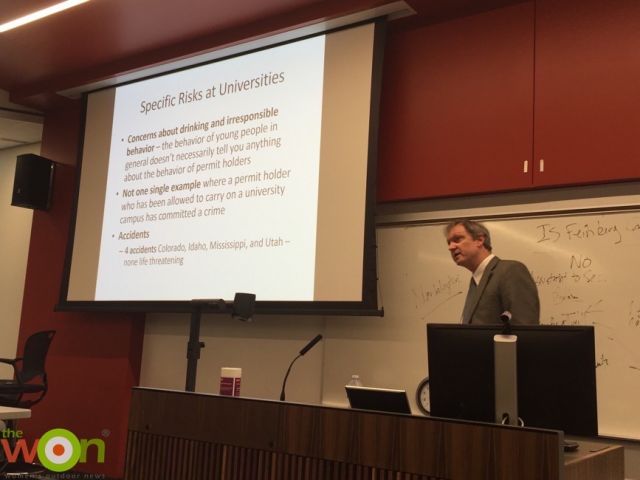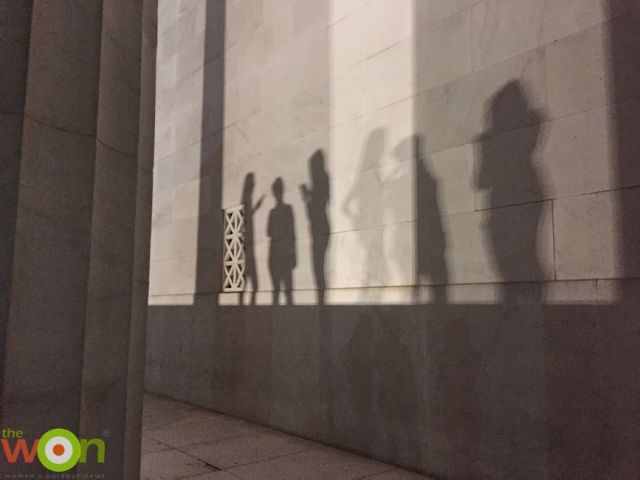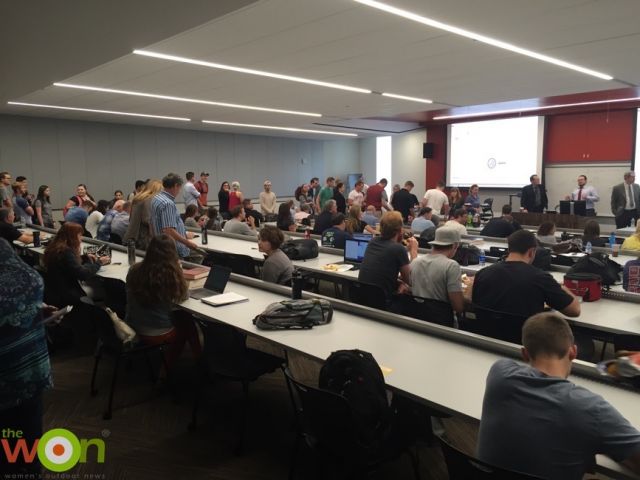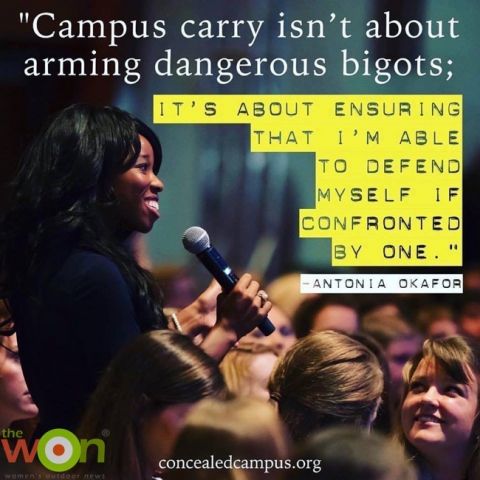Ah, September…. College campuses are all a-bustle and the air is crackling with the promise of greatness. Open-mindedness is the watchword of the day—minds are open to absorbing new knowledge, open to exploring new ideas, open to allowing legal firearms and enacting Campus Carry. At least, some campuses are. Let’s look at the groups and colleges that are helping to expand this horizon for college students.
#1) Students for Concealed Carry
From their website, ConcealedCampus.org:
Students for Concealed Carry is a student-run, national, nonpartisan organization which advocates for legal concealed carry on college campuses in the United States as an effective means of self-defense.
SCCC has two main functions. The first function is to dispel the common myths and misconceptions about concealed carry on college campuses, by making the public aware of the facts. The second function is to push state legislators and school administrators to grant concealed handgun license holders the same rights on college campuses that those licensees currently enjoy in most other unsecured locations.

Dr. John R. Lott’s lecture notes.
SCCC has eight regional offices across the United States:
The Southeast regional chapter is based on the campus of Georgia Institute of Technology, and is directed by NRA Certified Instructor Robert Eager.
The Rocky Mountain regional chapter, based in Colorado, is directed by competitive multi-gun shooter Philip Harding.
The Southwest regional chapter is based in Texas and directed by Antonia Okafor. Antonia is an accomplished young woman and firearms instructor, who, among other notable achievements, was recently been featured in one of the NRA’s “Freedom’s Safest Place” television ads.
The Central regional chapter, based in Kansas, is under the direction of Zachary Zalneraitis. Zachary is national director of public relations for Students for Concealed Carry and is responsible for the organization’s media relations and social media presence.

The East regional chapter is under Director Alex Dawes; the Midwest regional chapter director is Stuart Dedmon. Regional offices in the Northeast and West are in search of volunteer leaders.
Fully aware that the organization has detractors who engage in emotional, fear-based discussions about the topic of allowing guns on campus, the SCCC has a page on its website filled with powerful, fact-filled statements and counter-arguments to those who oppose Campus Carry: Common Arguments Against Campus Carry.

#2) Crime Prevention Research Center
While not an advocacy group, the Crime Prevention Research Center helps to catalog and disseminate statistics and factual information about firearm-related crime, both on and off college campuses. Dr. John R. Lott is the president of this organization and has authored a number of books, including More Guns, Less Crime and his latest, The War on Guns: Arming Yourself Against Gun Control Lies.
Earlier this September, Dr. Lott participated in a debate with Arizona state representative Juan Mendez on the Arizona State University Law School campus. In the debate, Dr. Lott asked and answered a series of questions that he often hears from those who believe that guns on campus pose a threat to staff and students. Dr. Lott effectively presented that the statistical results show that “while bad things can happen with firearms on campus, the past clearly shows us that those things simply have not occurred.” The overarching theme of the debate was that guns on college do not create an increased risk of injury or danger.

#3) Colleges that allow Campus Carry:
According to the National Conference of State Legislatures, here is the breakdown of the decisions concerning campus carry in all 50 states (as of May 31, 2016):
Currently, there are 18 states that ban carrying a concealed weapon on a college campus: California, Florida, Georgia, Illinois, Louisiana, Massachusetts, Michigan, Missouri, Nebraska, Nevada, New Jersey, New Mexico, New York, North Carolina, North Dakota, Ohio, South Carolina and Wyoming.
In 23 states the decision to ban or allow concealed-carry weapons on campuses is made by each college or university individually: Alabama, Alaska, Arizona, Arkansas, Connecticut, Delaware, Hawaii, Indiana, Iowa, Kentucky, Maine, Maryland, Minnesota, Montana, New Hampshire, Oklahoma, Pennsylvania, Rhode Island, South Dakota, Vermont, Virginia, Washington and West Virginia.
Because of recent state legislation and court rulings, eight states now have provisions allowing the carrying of concealed weapons on public postsecondary campuses. These states are Colorado, Idaho, Kansas, Mississippi, Oregon, Texas, Utah and Wisconsin. Not included in the above list, Arkansas and Tennessee allow certain faculty members to carry weapons on campus but these laws do not extend to students or the general public.

Antonia Okafor – SCCC Regional Director
For many people, the topic of personal protection is key to making decisions about where they will purchase a cup of coffee, enjoy an evening at the movies, and even where they will seek their higher education. People tend to “vote with their dollars” by supporting businesses and organizations that align with their own value systems. If concealed-carry concerns are a consideration in choosing a college education for yourself or your children, there is good news and many options across the nation. To find out more about Campus Concealed Carry or to inquire about how you can help in your state, please contact Students for Concealed Carry.
Cheryl Todd is the executive producer and co-host of “Gun Freedom Radio,” owner of AZFirearms Auctions, Pot Of Gold Auctions and founder of the grassroots movement Polka Dots Are My Camo. Cheryl is the Arizona state director for The DC Project and travels the country speaking as a champion for our Second Amendment rights. She is a driving force in preserving the legacy of freedom for generations to come. View all posts by Cheryl Todd